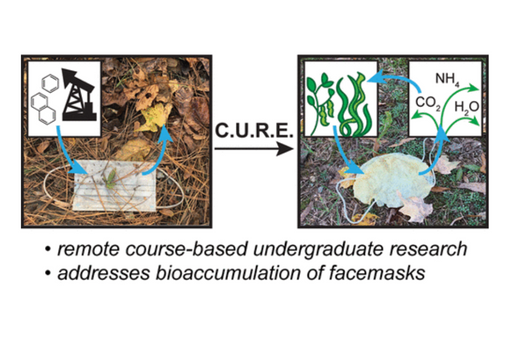Development of Bioderived Alternatives to N95 Face Masks in a Remote Course-Based Undergraduate Research Experience
Abstract
The high demand for N95 and surgical masks made of nonbiodegradable petroleum-based materials due to SARS-CoV-2 challenges the recycling industry and is proving to be unsustainable. Although woven fabric masks present a longer lifetime, they are less effective in protecting against viral particulates. Here, through an at-home course-based undergraduate research experience (CURE), we demonstrate that alginate and soy-based materials are attractive alternatives for mask fabrication: stacking calcium ion-cross-linked alginate films with soy protein isolate sheets enables electrostatic and size-exclusion filtration. State-of-the-art aerosol testing confirmed this conclusion. Furthermore, because our synthetic and at-home analytical approach relies on cheap, abundant, and food-grade materials, and requires no equipment beyond kitchenware, it has the potential to be broadly adopted for practical and educational purposes.
Citation
Development of Bioderived Alternatives to N95 Face Masks in a Remote Course-Based Undergraduate Research Experience
Elizabeth E. Karlsson, Jia-Hao Hu, Michael J. Davern, Yidan Cong, Jin Yan, Jason D. Surratt, and Aleksandr V. Zhukhovitskiy
Journal of Chemical Education 2022 99 (9), 3196-3202
DOI: 10.1021/acs.jchemed.2c00532


